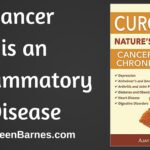I am devastated by the untimely death of actor Robin Williams, as I am sure many of you are as well. It’s hard to understand how such a brilliant comedian could fall into such profound despair that he would take his own life.
Let me say it without any equivocation: Depression is a disease. It is caused by brain chemistry imbalances. You cannot “tough it out” or “get over it” anymore than you can “tough out” or “get over” diabetes or cancer or Alzheimer’s.
This is first hurdle that society needs to clear: We must erase the stigma of depression. People who are depressed are no more responsible for their conditions than someone who has cancer.
Now, of course, I am talking about clinical depression here. This prolonged sadness that sometimes lasts for a lifetime, is very different from the sadness and grief from the death of someone close to you, the loss of a job or the end of a relationship.
What’s the difference? If you can put a finger on the cause of your sadness, it’s probably not depression and it will pass in time. That isn’t in any way to belittle the sadness and grief that comes from these kinds of losses, but the sadness will heal in time.
Depression does not heal.
Yes, there are all sorts of prescription drugs out there to address depression. Only about 40% of them work at all and their effectiveness is very individual. Plus there are some very serious side effects associated with virtually every single one of them.
Why not look at some more natural and basic ways to address brain chemistry imbalances?
First of all, there are certain nutrients are essential to brain health:
- All B vitamins, especially folate.
- Vitamin C
- Vitamin D
- Magnesium
- Zinc
- Amino acids tryptophan and tyrosine
- 5-HTP that helps your body form tryptophan
- Healthy fats
Here are a few more:
Rhodiola: Rhodiola is a powerful adaptogen, much like ginseng, meaning it relieves whatever challenges your brain is experiencing. Rhodiola actually works like a smart pill on your brain chemicals. It doesn’t disturb your body’s normal biological climate, it simply works to give you a boost when you need one and calm you down when you need to calm down.
I’ve seen many, many people with deep depression respond fast to rhodiola.
Russian research proves rhodiola can actually triple your body’s ability to produce feel-good hormones like serotonin, dopamine and norepinephrine. Other studies show that subjects exposed to extreme stress improved their performance by up to 159% when they had rhodiola in their systems! Rhodiola actually changes the way your body responds to increased demands on the sympathetic and parasympathetic nervous systems, returning your body’s stress response system to balance.
Light and exercise. Seasonal affective disorder (SAD) affects as many as 5 percent of us in winter when the days get shorter and we are literally getting less light and less vitamin D in our lives – and to our brains. The problem is compounded because most of us prefer to huddle by a warm fireplace rather than get out and play in the snow.
What you need to do is the exact opposite! Get outside, get as much sun and light as you can get and you’ll most likely feel better. Many people get help by sitting in front of a full spectrum light box from 30 to 60 minutes a day.
Even if your depression isn’t caused by the shorter days, there is abundant scientific evidence that shows that exercise helps relieves, so a good brisk walk may work wonders for you!
For depression, experts advise starting with about 400 mg daily and working up to 700 mg, if needed. Results are usually noticeable within two weeks.
St. John’s wort. Scientific research has shown over and over that St. John’s wortcan help relieve the symptoms of mild to moderate depression.
A British Medial Council review of studies shows that taking St. John’s wort for as little as four weeks provided relief in at least 69 percent of those who took it and in some studies, 100 percent reported their moods improved when they took the herb. That makes it at least as effective as some prescription antidepressants, without the serious side effects of many prescription medications. Better yet, 69 percent of those who took St. John’s wort for a year or more were able to keep depression at bay.
The dosage most commonly used in scientific studies was 600 to 1200 milligrams daily.
Good fats. Eating a piece of salmon, sprinkling ground flaxseed on your salad or swallowing a few fish oil capsules may go a long way toward improving your mood, according to a review published in the American Journal of Psychiatry.
Several studies confirm that many people suffering from depression has low intake of those all important Omega-3 fatty acids, those good fats found in fish like salmon and tuna, and on. The other, hand, those who ate the most fatty fish were the least likely to experience depression.
You’ll need to take 3 to 6 grams of good quality fish oil a day to help beat the blues.
SAM-e. S-adenosyl-L-methionine is an effective treatment for depression, according to research from the University of California at Irvine. SAM-e relieved depression in 62% of subjects in just four weeks, compared to a success rate of only 50% for desipramine, an anti-depressant drug sold under the brand name Norapramin.
The study also showed that those with the most SAM-e in their blood, regardless of how they were treated, scored much lower on standard tests for depression.
Most studies found that between 800 and 1600 milligrams of SAM-e was the most effective dose
It’s likely one or more of these natural remedies for depression will help you, although it’s a good idea to check with your doctor before you start taking any of them, since some may interact with other medications.







